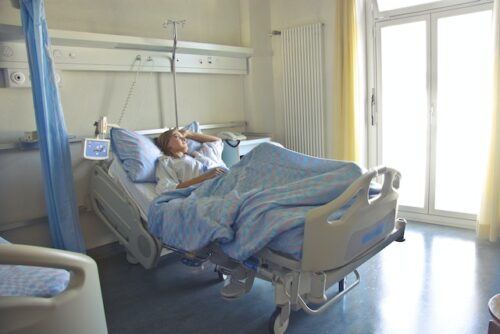
Most people hope that they can trust their medical professionals to provide them with the best care possible. Unfortunately, not every medical provider has the patient’s best interests in mind. If you’re an NJ resident who recently suffered an injury as a result of a negligent healthcare provider, you may be wondering how you can file a medical malpractice claim in New Jersey. Find out more information by contacting one of our New Jersey Medical Malpractice Lawyers today.
HOW CAN I FILE A MEDICAL MALPRACTICE CLAIM IN NEW JERSEY?
Medical malpractice is defined as a medical provider’s failure to use reasonable care with a patient, leading to injury or even wrongful death. Before filing a medical malpractice claim, you must first confirm that medical malpractice occurred. To ensure you have a case, you should speak with an experienced medical practice attorney to figure out what happened.
Not every accident caused by a medical professional can be classified as medical malpractice. Even medical providers who have your best interest in mind are susceptible to small mistakes. Generally, small medical errors cannot be held liable in court, but bigger mistakes that reflect the medical provider’s negligence can be considered medical malpractice. If your loved one passed away shortly after a surgery, the surgeons cannot always be held accountable especially if the patient signed a consent form before the procedure.
New Jersey’s Statute of Limitations is two years, so you have two years from the date of your injury (or from the date that you should have been reasonably aware of your injury) to file a medical malpractice claim. If filing for wrongful death, you have two years from the date of the patient’s death.
HOW DO YOU PROVE MEDICAL MALPRACTICE?
There are four elements needed to successfully prove a medical malpractice claim. Essentially, you must prove the medical provider to be negligent. In court, negligence is defined as a person’s failure to use reasonable care, resulting in harm to others. You can prove medical negligence in the following steps:
- The medical professional has a duty to provide proper care
- The medical professional violated that duty
- The patient suffered an injury at the hands of the medical professional
- The injury was a direct result of the medical professional’s failure to provide proper care
Whether an injury or wrongful death, you may receive financial compensation for both medical expenses and your pain and suffering. If you recently experienced an injury at the hands of a negligent medical professional, we want to fight for you! Contact Rubenstein, Berliner & Shinrod, LLC for legal counseling from one of our trusted and highly experienced attorneys.
